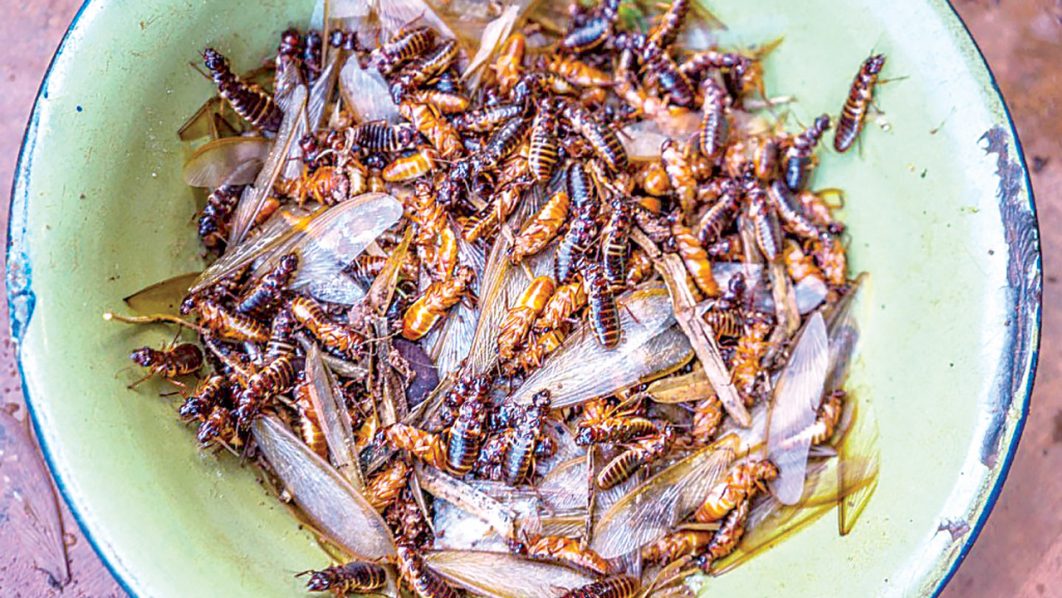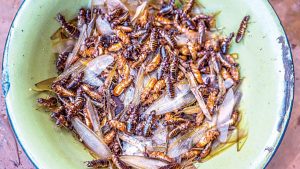Following a groundbreaking new study, researchers have discovered that eating ants and other insects could soon be recommended to protect against cancer.
A series of experiments by Italian scientists show that the ubiquitous invertebrate – in common with others such as grasshoppers and crickets – contains high concentrations of antioxidants.
The compounds are important for reducing chemical reactions in the body that produce free radicals, which are themselves believed to raise the risk of cancer. They have also been linked to higher chances of cardiovascular diseases and diabetes.
Antioxidants are present in a range of foods, including fruit and vegetables.
However, many of these consumed in the United Kingdom (UK) have a poor carbon footprint.
Food scientists believe western consumers will have to begin incorporating insects into their diet in coming decades, so a group at the University of Rome set out to discover the invertebrates’ antioxidant potential.
They found that after grinding down the insects, many had several times the concentration of antioxidants found in orange juice or olive oil, two of the items most frequently recommended to limit free radicals.
The new study is published in the journal Frontiers in Nutrition.
Water-soluble extracts of grasshoppers, silkworm and crickets displayed the highest values of antioxidant capacity, five-fold higher than fresh orange juice.
The scientists at the University of Rome ground down various insects including ants, grasshoppers, crickets and silkworm.
They then tested the powder to work out how many antioxidants – compounds such as vitamins A, C and E and beta-carotene – were in them.
Only the soluble parts of the insects were used – their wings and stingers were taken off first – with the view of them being consumed as a drink.
Meanwhile grasshoppers, black ants and mealworms contain the highest levels of total polyphenols, another way of characterising antioxidant potential.
Fat-soluble extracts of silkworm, giant cicada and Africa caterpillars showed an antioxidant capacity twice that of olive oil.
Prof. Mauro Serafini, who led the research, said: “At least two billion people – a quarter of the world’s population – regularly eat insects. The rest of us will need a bit more encouragement.
“Edible insects are an excellent source of protein, polyunsaturated fatty acids, minerals, vitamins and fiber.
“But until now, nobody had compared them with classical functional foods such as olive oil or orange juice in terms of antioxidant activity.
“In the future, we might also adapt dietary regimens for insect rearing in order to increase their antioxidant content for animal or human consumption.”
Insects are gradually crawling their way into the UK diet.
Last November Sainsbury’s announced it would become the first British supermarket to stock edible bugs, launching Eat Grub’s Smoky BBQ Crunchy Roasted Crickets in 250 stores across the country.
The crickets are marketed as both a standalone snack or to garnish dishes such as tacos, noodles or salads.
In 2017 Deliveroo customers in parts of London started being able to order morsels such as spicy cricket rice cakes, salted cricket and smoked tomato salad, as well as buffalo worms wrapped in a beta leaf through the app.
For the new research, the team tested a range of commercially available edible insects and invertebrates, using various measures of antioxidant activity.
Inedible parts like wings and stings were removed, then the insects were ground and two parts extracted for each species: the fat, and anything remaining that would dissolve in water. Each extract was then tested separately.
The insects that were themselves vegetarian had much higher antioxidant capacity compared to those such as tarantulas and black scorpions.
Among the different species available for human consumption, Coleoptera (beetles), Lepidoptera (African caterpillars) and Hymenoptera (bees, wasps and ants) represent 31, 18 and 14 per cent of total insect consumption around the world respectively.
Until now several studies have shown that besides the traditional use of insects such as crickets, termites and grasshoppers as part of the Nigerian diet for their nutritive values, they could be bioengineered for the treatment of cancer, diabetes, rheumatoid arthritis, Human Immuno-deficiency Virus (HIV), wounds, obesity, malnutrition among other benefits.
Eating ants, grasshoppers, silkworms protect against cancer -Study






